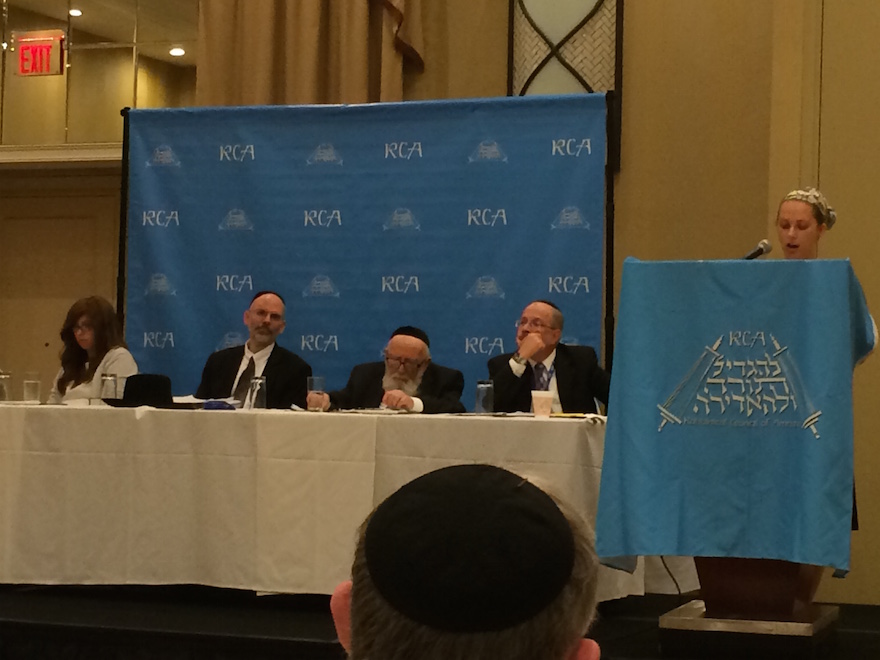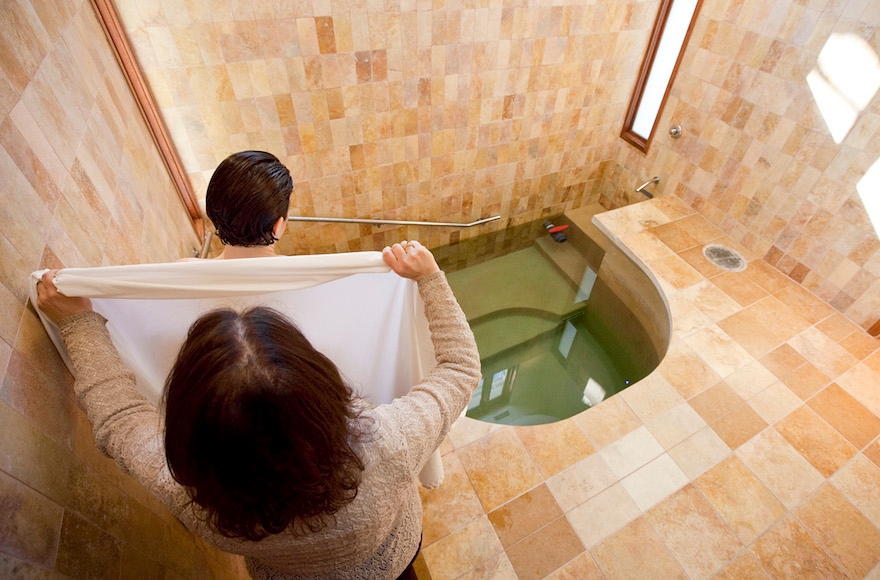
A speaker at a panel at the Rabbinical Council of America’s recent annual convention in Tarrytown, New York. (Courtesy of RCA)
There’s some tantalizingly interesting material in the final report of a committee charged with reviewing the way the Rabbinical Council of America, the country’s main Orthodox rabbinical association, deals with conversion.
Much comes from a survey of 439 Orthodox converts that provides the first-ever statistics about American Orthodox converts. Some comes from a survey of 107 rabbis who sponsor Orthodox conversions. A few other interesting nuggets are buried in the report itself.
Here are 10 I found interesting:
- Of the RCA’s Orthodox converts:
- 78 percent are women
- 72 percent are ages 20-39
- 45 percent have Jewish ancestry
- 80 percent cite “spiritual-intellectual search” as their reason for converting
- About 85 percent of converts said the process of immersing naked in a mikvah ritual bath in the presence of three rabbinic witnesses was handled with sufficient modesty.
- About 57 percent said the experience was “filled with holiness and excitement that left little room for anything else,” 29 percent said it felt like a sanctified moment but a little uncomfortable, 12 percent said it was just awkward and uncomfortable, and 2 percent said they resented it.
- About one-quarter of respondents felt their “beit din,” or conversion court, was lacking in professionalism and left them feeling powerless, subject to unreasonable demands or judged critically.
- More than a third of rabbis who sponsor converts in the RCA system are not actually members of the RCA.
- Sponsoring rabbis in New York City are relatively inexperienced: About half have guided no more than one or two conversion candidates, compared with at least five to 10 candidates among most rabbis of other regions.
- 18 percent of sponsoring rabbis said they had at least one conversion candidate rejected by the RCA’s rabbinical court whom they felt should have been accepted. In four out of five such cases, the sponsoring rabbi referred the candidate to an independent rabbinical court outside the RCA’s purview.
- If you’re black, expect to face racism among Orthodox Jews. That’s one of the warnings the review panel recommends sharing with convert candidates of “ethnic origin.” (“Sensitivity should be shown, as appropriate, to matters of ethnic origin as it may impact a convert’s future integration into the Jewish community,” it says.)
- The most commonly reported cause of frustration and anxiety among conversion candidates was the absence of a realistic sense of the timeline for converting.
- Converts who were raised as Jews (for example, a Reform Jew who learns she is not Jewish according to Orthodox law because her mother wasn’t Jewish or didn’t convert Orthodox) may have faster conversions because they are more familiar with Jewish law but still must commit to the same strictly Orthodox level of observance as all other Orthodox converts.
READ: Orthodox rabbinic group outlines conversion reforms after mikvah-peeping rabbi scandal
JTA has documented Jewish history in real-time for over a century. Keep our journalism strong by joining us in supporting independent, award-winning reporting.






